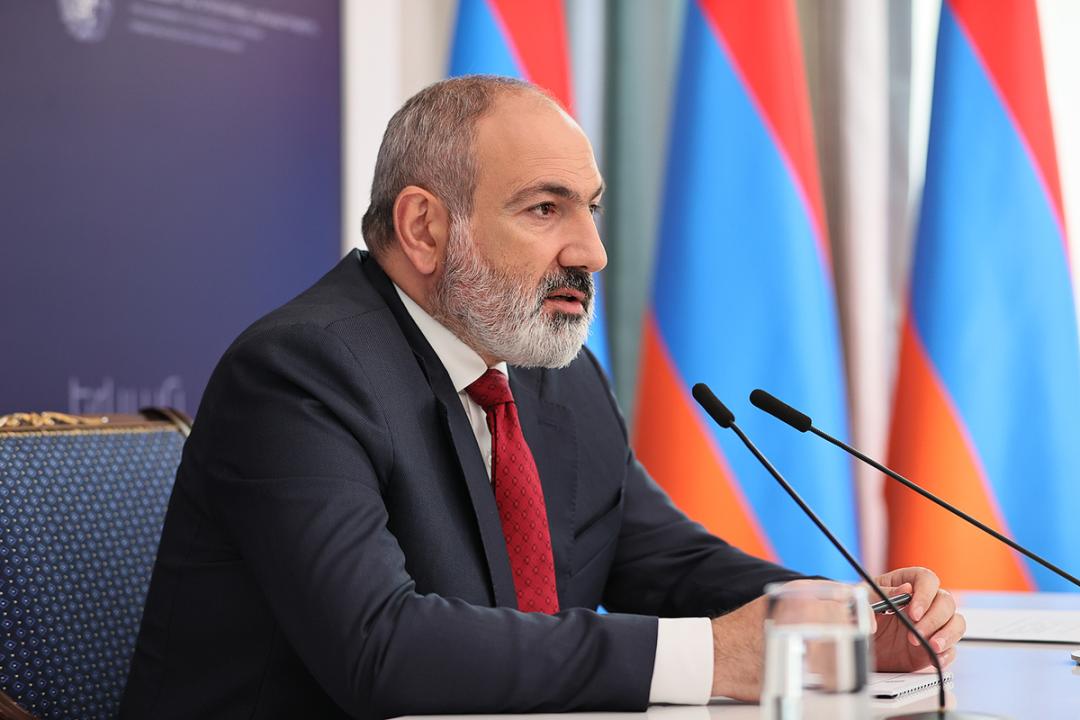
Armenian PM Pashinyan Discusses Lachin Corridor, UN Security Council, and Nagorno-Karabakh at Press Conference

Armenian PM Nikol Pashinyan held a press conference on July 25, addressing a range of critical issues. During the conference, he referred to the recent meeting in Brussels with Azerbaijani President Ilham Aliyev, facilitated by the President of the European Council, Charles Michel. Following the meeting, Charles Michel highlighted the importance of Azerbaijan’s commitment to delivering humanitarian supplies through Aghdam. However, Pashinyan clarified that he did not discuss this specific point as he believed it was beyond his mandate. Instead, he focused on the Lachin Corridor, which was created with his involvement and has an International Court of Justice decision to ensure the free movement of goods, citizens, and vehicles.
When questioned about why Armenia has not brought the issue of the Lachin Corridor to the UN Security Council, PM Nikol Pashinyan explained that there is no barrier to addressing the Security Council. He shared that Armenia is already in a dialogue with both permanent and non-permanent member countries of the UN Security Council and engaging in discussions regarding the matter. However, Pashinyan also emphasized that various factors, including political considerations, influence decisions made by the UN Security Council. Therefore, he highlighted the importance of thorough preparation and extensive discussions with member states before making such a significant step.
Referring to the situation in Karabakh, Pashinyan emphasized that Armenia cannot unilaterally decide the fate of the people of Nagorno-Karabakh. He stressed the importance of including Stepanakert as a party to the negotiations and dialogue. Pashinyan expressed that the issues concerning Nagorno-Karabakh should be addressed within the framework of an international mechanism, specifically through the Baku-Stepanakert dialogue. This approach would enable the representatives of Nagorno-Karabakh, including the government, to have a say in the discussions and take political responsibility for the resolution’s content. He believes this is the most effective path to achieve a comprehensive and meaningful solution.
Regarding a potential peace treaty between Armenia and Azerbaijan, Pashinyan pointed out that considerations are being made about whether it should include references to Nagorno-Karabakh and be part of a broader solution or if the issues related to the security and rights of the Nagorno-Karabakh people should be addressed separately.
Regarding the activities of Russian peacekeepers in Nagorno-Karabakh, PM Pashinyan commented that if Russia decides to withdraw its peacekeeping troops, it could indicate that certain objectives have been achieved in the region. Pashinyan pointed out that if Russia chooses to withdraw its troops, it may signify that the danger of mass casualties in Nagorno-Karabakh has diminished. He suggested that if there were still a significant threat to the population, it would be difficult to envision a decision to withdraw the peacekeeping forces. Conversely, if the situation has improved and the danger has subsided, it might imply that certain processes, like the Baku-Stepanakert dialogue within the international mechanism, have been effective in addressing the concerns in the region.
Regarding the involvement of the West and Russia in the negotiations, Pashinyan expressed high appreciation for the United States’ significant efforts to facilitate a potential peace agreement. He commended the US for playing a crucial role in the negotiation process and dispelled any concerns that the US’s role might be diminishing.
At the same time, the Armenian PM acknowledged that Russia’s negotiation activity has somewhat decreased, which he attributed to the ongoing events in Ukraine. He mentioned that circumstances beyond control have impacted Russia’s level of engagement in the negotiations.
See Also


Armenia Records 5.9% GDP Growth in 2024, Missing 7% Goal

Yerevan Balances Strategic Ties with Both US and Russia, Says Foreign Minister

FM Mirzoyan: Peace Deal with Azerbaijan Is Within Reach

Pashinyan and Erdogan Hold Call, Reaffirm Commitment to Ongoing Dialogue

